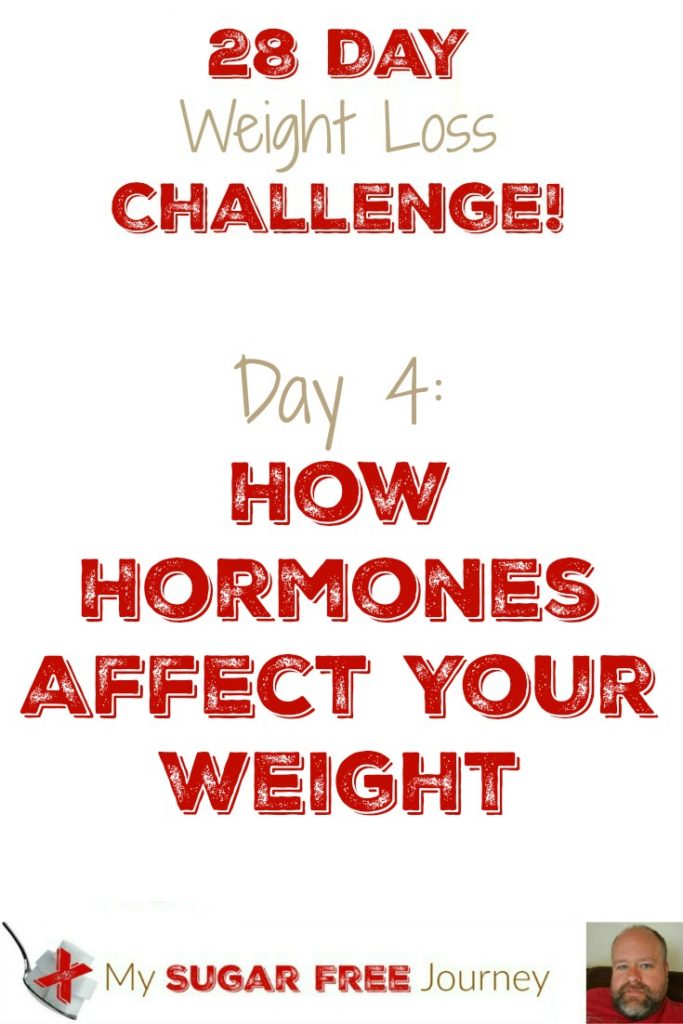
The Three Hormones That Determine Your Weight (and how to change them!)
When it comes to dieting, many people believe that their hormones don’t have anything to do with their weight. This is because hormones are typically associated with things like menopause, puberty, sugar cravings, being grumpy, or worse– “that time of the month”. But the truth is, your hormones play a crucial role in your weight and overall health.
If you have been trying to lose weight, you have to remember that you should not only think about the calories you consume. In order to achieve your weight goal, you also have to balance your hormones. But how do you do this? The key is to thoroughly understand the hormones that play a significant role in your weight. Let’s dig deeper into the topic.
What Are Hormones?
Your body comes with chemical messengers called hormones. They travel through to your tissues or organs via your bloodstream. Since they work slowly, they can affect a number of processes over time; among which include your growth, development, and metabolism. They also work to control your blood sugar levels and balance insulin in your body. Because of their role, the amount of fat you gain or lose depends on how well they do their job.
You might also like: Day 4: How Hormones Affect Your Weight
What Are The Three Hormones That Determine Your Weight
When it comes to losing weight, there are three main hormones that handle this role in your body. These include the following:
Insulin
The pancreas secretes a hormone called insulin in order to regulate glucose levels in the body. Its job is to remove enough sugar from the bloodstream to keem blood sugar levels in the optimal range. The foods that promote insulin secretion includes white refined flour, sugar and other carbohydrates.
This hormone is vital in absorbing the nutrients that come from the food we consume. Whenever carbs are consumed, the glucose level in the blood increases. The pancreas then releases the hormone so that the sugar can be taken out of the bloodstream and transported into the organs to be used for fuel or stored for energy in the future.
Over time, if insulin levels are chronically high, the body becomes resistant to insulin’s signalling. As insulin resistance increases, the pancreas has to produce more and more insulin to keep up with the same load of blood sugar, eventually resulting in diabetes. This disease produces a number of health problems, such as hearing loss, gum disease, vision loss, and high blood pressure. If left untreated, it could produce more severe complications like kidney damage, eye damage, and an increased risk for heart disease or stroke.

How To Prevent Insulin Resistance
Eating simple carbs too often can lead to insulin resistance. When this happens, your body needs to produce more insulin than it needs to in order to stabilize glucose levels in your blood. If you have poor insulin sensitivity, you will have a difficult time using carbs for energy, forcing them to be stored as fat. This will also lead to weight gain. Eventually, your pancreas will become exhausted and won’t properly release the hormone. This is when your type 2 diabetes can develop into a more dangerous form of the disease, LADA or Type 1.5 Diabetes.
Apart from increasing your risk of diabetes, insulin resistance puts you at risk for thyroid problems and certain kinds of cancer. You will also have a difficult time getting rid of fat from your body. This is why you have to make sure that insulin functions properly in your body.
Leptin
Another hormone that directly impacts your weight is leptin. This hormone, released from the fat cells found in adipose tissues, is responsible for sending signals to your brain’s hypothalamus. Leptin helps regulate and change your long-term food intake and the way your body uses energy. It is designed to help maintain your body weight.
Leptin’s Connection With Your Body Fat
Since the hormone comes from fat cells in your body, it plays a direct role in the amount of body fat you have. If you gain weight, the levels of leptin in your body also increases. And if your body fat reduces, your leptin will also decrease.
What Happens With Too Much Leptin
Also known as the satiety hormone, leptin helps curb hunger and balance your energy. When it does not need energy, your body does not feel hunger. As leptin levels fall, it can trigger an increase in your food cravings and appetite. And because of this, it can challenge your attempts at losing weight.
When you are obese, that also means that your blood has too much supply of leptin. A study has discovered that leptin levels in obese individuals are up to four times higher than those with a normal weight. This causes leptin resistance, a condition wherein there is a lack of sensitivity to the hormone. As you keep eating, more leptin will be produced by the fat cells; which could signal the feeling of satiety. If you have an impaired level of leptin in your body, the signal in your brain to stop eating does not get through. Because of this, your brain tells you to continue eating because it still thinks that it is starving.
Cortisol
Also known as the stress hormone, cortisol is another hormone that affects your weight when there is an imbalance. If your cortisol level is elevated due to stress, your body increases its production of insulin too. High-stress levels encourage your adrenal glands to produce an imbalance of cortisol, DHEA, and adrenaline. When stress subsides, your hormone levels will stabilize. But because there has been a long period of time of stress, the irregular levels produce a negative effect on your body.

How Stress Affects Your Weight
Studies have shown that cortisol imbalance produces a fluctuation in your weight. Both excessive and inadequate cortisol levels in your body can affect your glucose levels and thyroid function. This can lead to weight fluctuation and low metabolism.
Some of the factors that may lead to cortisol imbalance include the following:
- Inadequate sleep
- Change in work schedule
- Emotional imbalances
- Excessive carbohydrate and sugar consumption
- Severe infections
- Frequent delayed or skipped meals
- Physically/mentally overworking
- Excessive exercise
- Traumatic injury or surgery
- Toxic environments
Cortisol And Insulin
Cortisol and insulin both have a complicated relationship with each other. When your cortisol level increases, your cells can be insulin resistant. This could lead to a spike in your glucose levels, weight gain, and even the onset of type 2 diabetes. On the other hand, if the cortisol level excessively drops, your blood sugar levels also decrease; which could lead to hypoglycemia. Both scenarios can trigger low metabolism symptoms such as depression, fatigue, cold, poor concentration, and decreased memory.
How To Improve These Hormones
- Exercise Regularly – The recommended number of times you should exercise is between three to four times a week. When you do, you’ll be able to improve almost every health marker in your body. This is because exercise favors increased insulin-stimulated glucose uptake in your skeletal muscle instead of adipose tissue.
- Get Enough Sleep – In order to allow your body to function smoothly, you need to have enough sleep. When you sleep, your body stimulates the production of hormones. If you don’t get adequate sleep, it contributes to obesity and may lead to type 2 diabetes. The recommended number of hours is between six and seven hours each night. And of course, this means that you are truly well-rested and not just closing your eyes while you lie down on your bed.
- Eat Fewer Carbohydrates – As mentioned, eating a lot of simple carbs can lead to your body producing a lot of insulin. This is why you should follow a diet that consists of low amounts of simple and processed carbs, particularly sugar. After you exercise, however, it is normal to have a spike in your blood sugar so that insulin can transport nutrients much faster to the tired muscles in your body.
- Opt For Food That Digests Slowly – Whenever you eat out, make it a point to consume food that digests slowly. This is because the sugars take a long time to enter your bloodstream, thus allowing insulin to release more gradually. Some of the best examples of food you should eat include protein, fiber, and fats.
- Learn To Relax – Studies have shown that relaxation exercises can reduce your cortisol levels. One way you can practice relaxation is to follow deep breathing exercises. A study found a reduction of cortisol levels in almost 50 percent of middle-aged women who practiced deep breathing. Other options include practicing yoga, tai chi, meditation, prayer, or even listening to relaxing music.
You may also like: Day 14: The Importance Of Exercise
These are just some of the things you can do to have a healthy balance of the three above-mentioned hormones. By practicing these tips, you can help control your hormones and be successful at your weight loss journey.
Don’t miss a post! Click here to sign up for our daily email!



